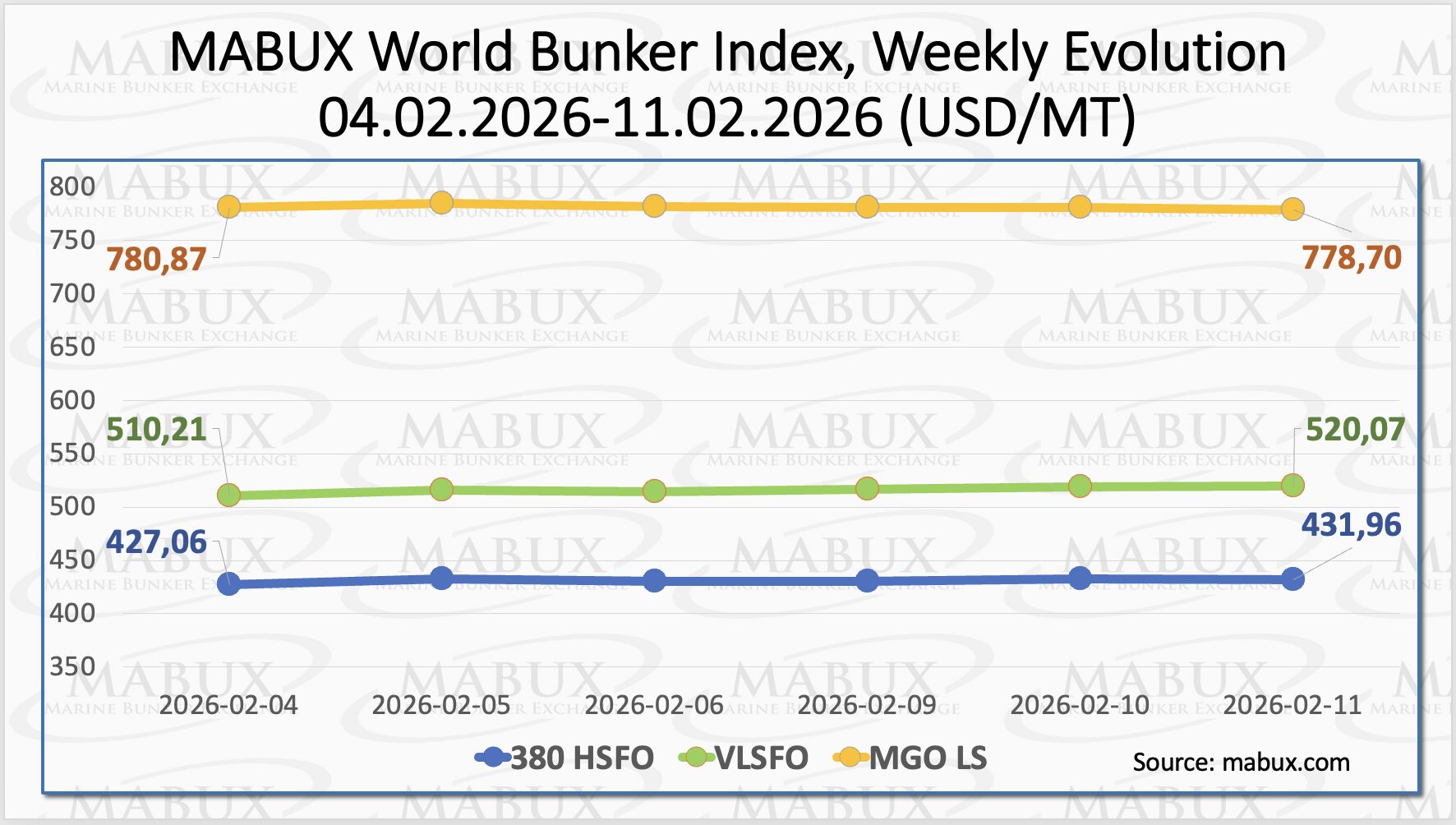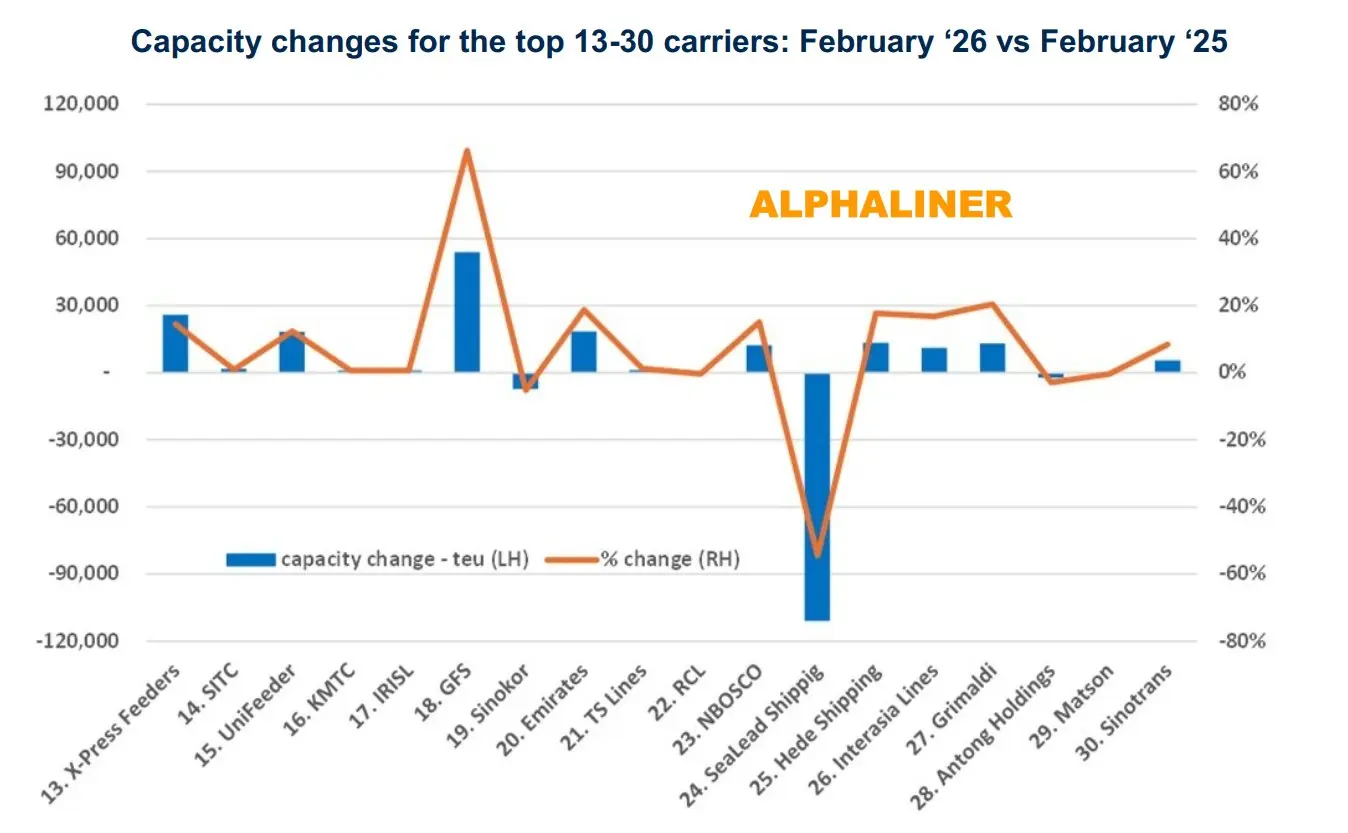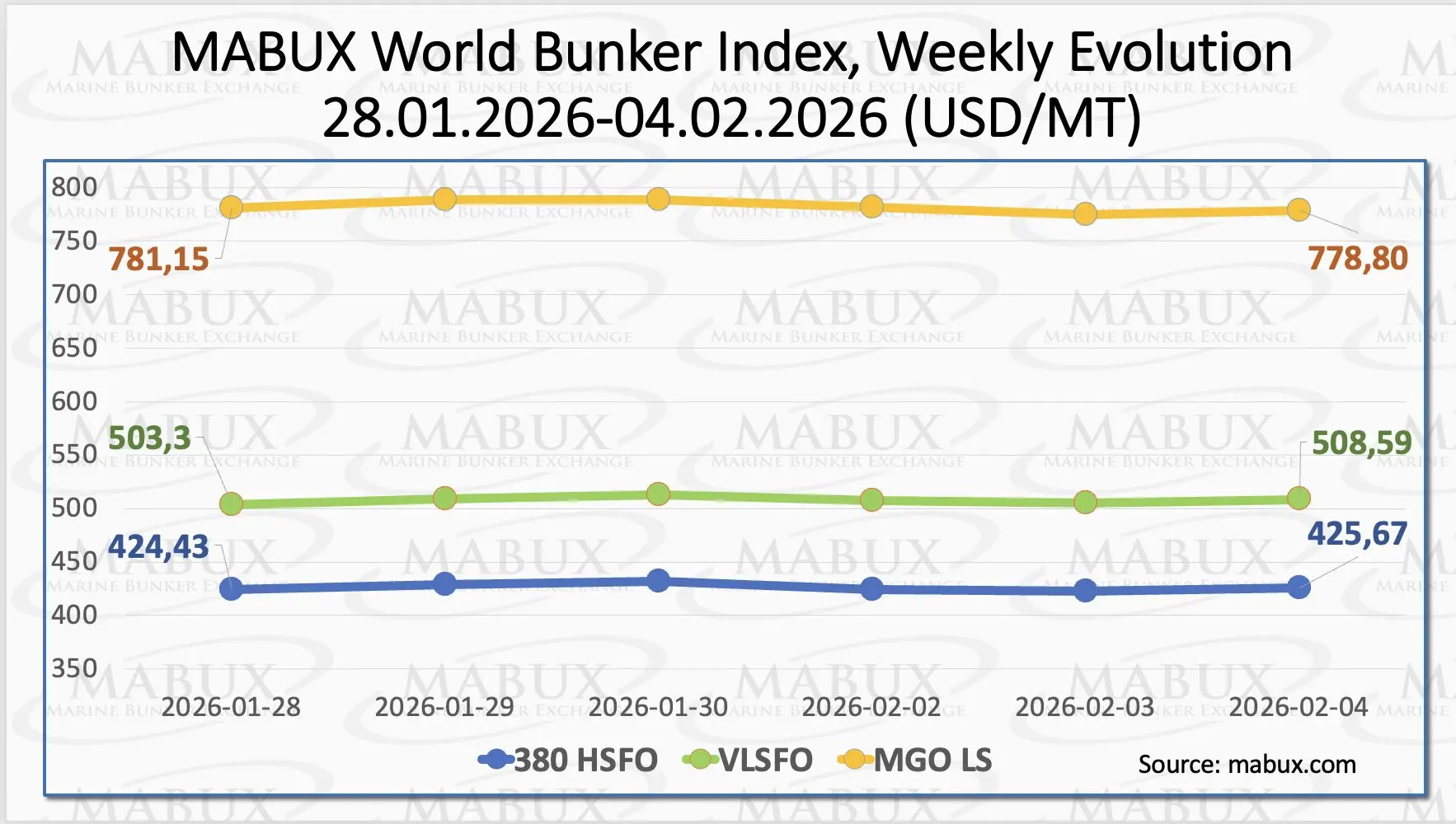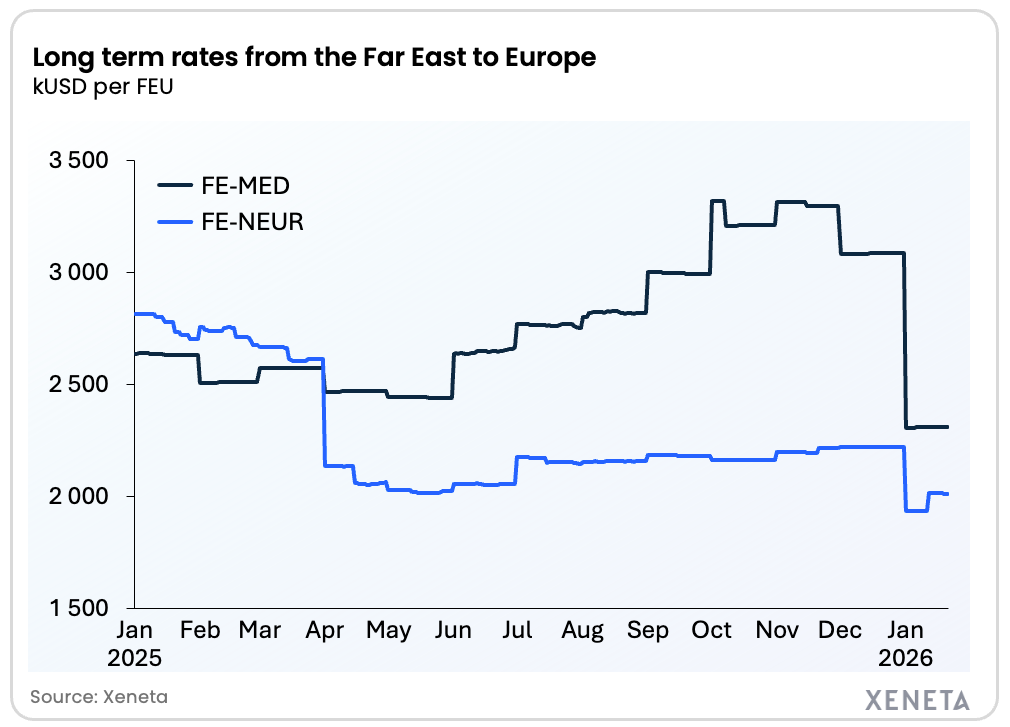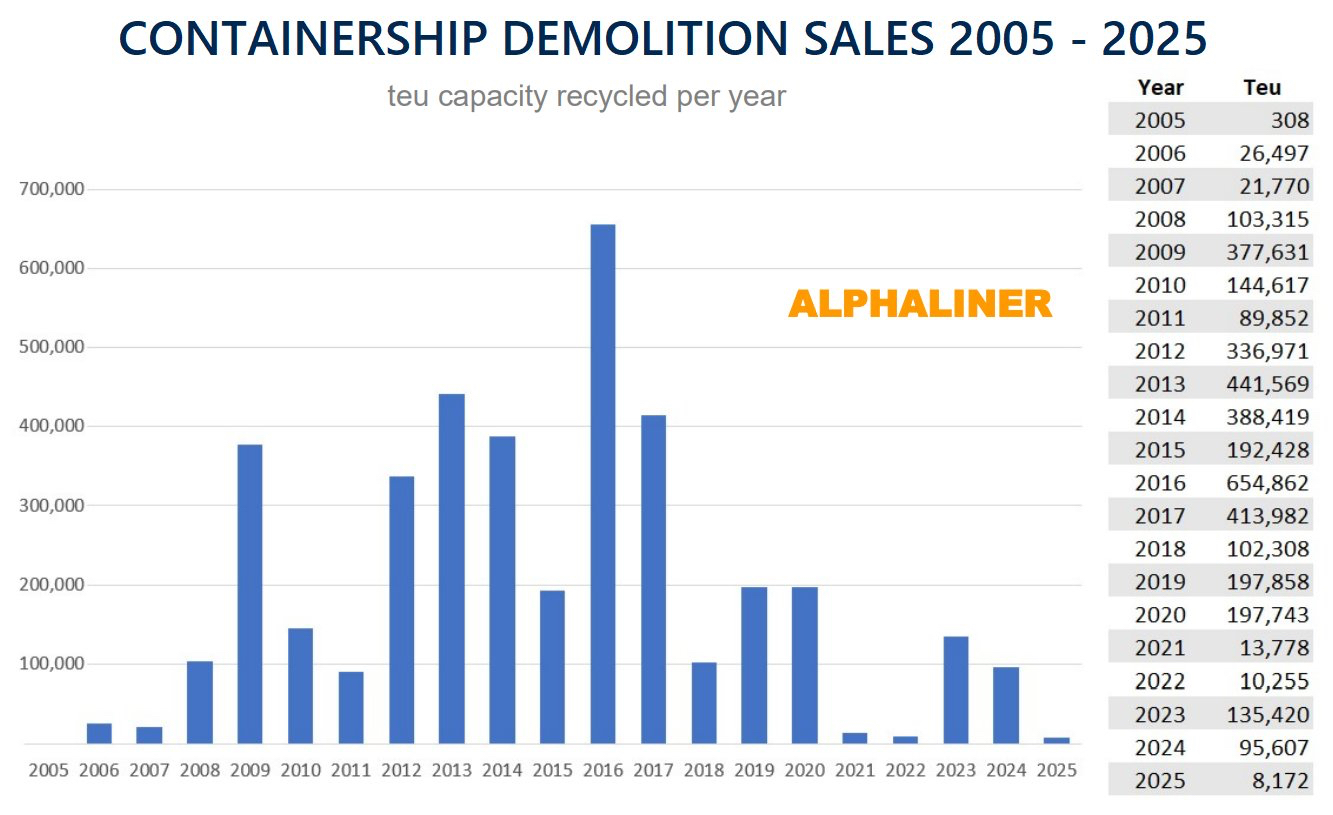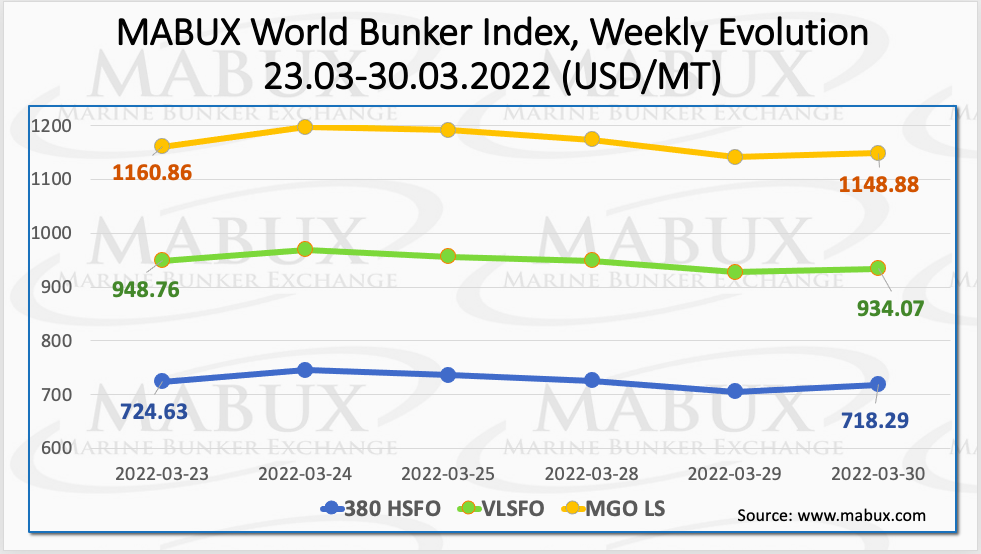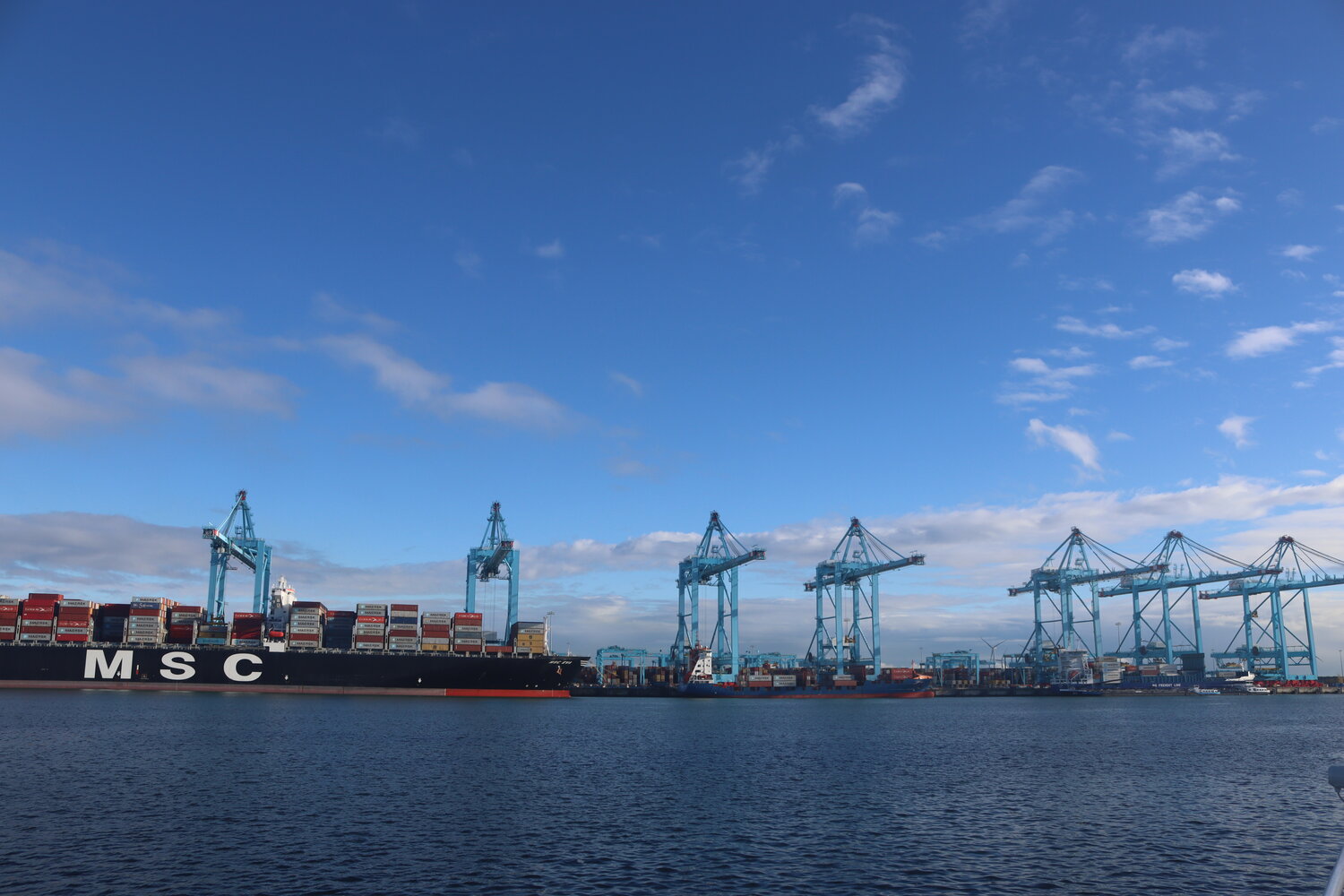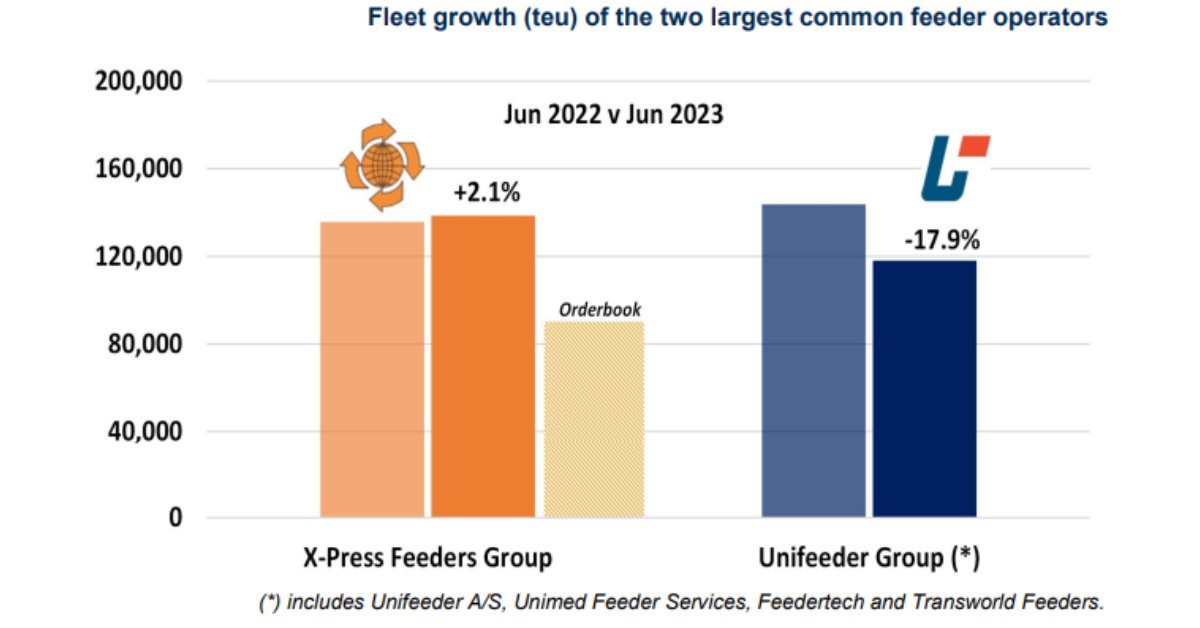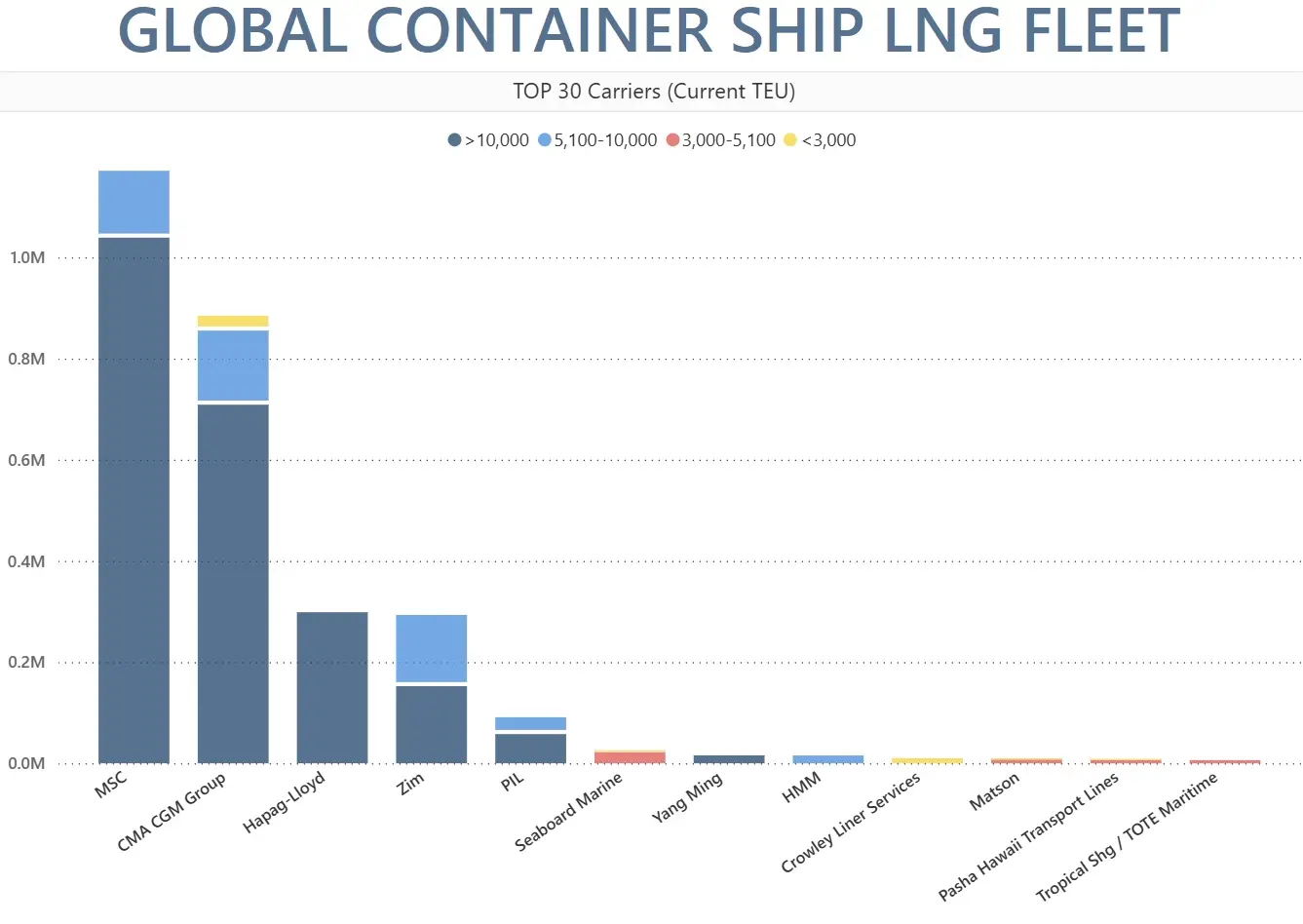
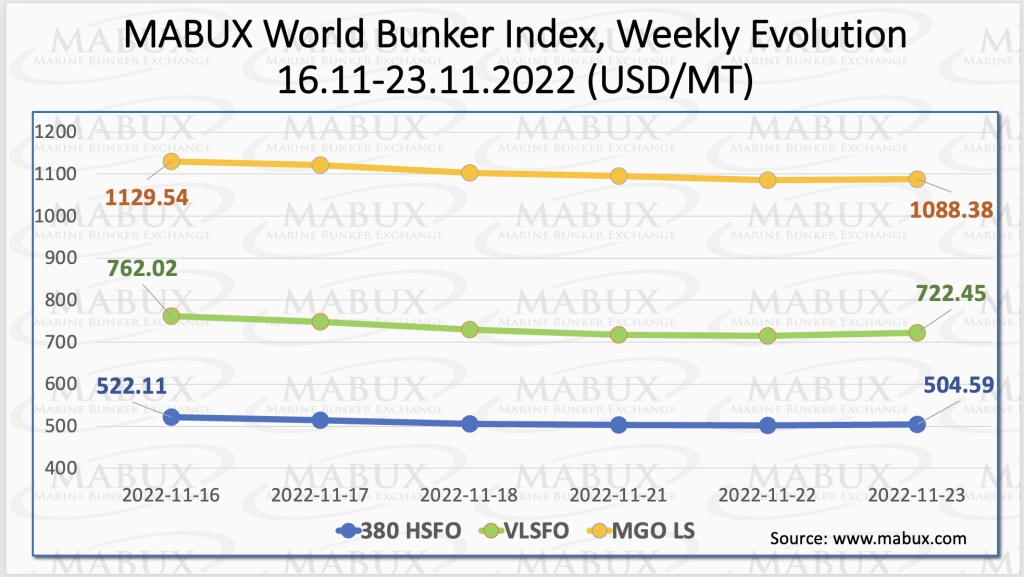
Over the Week 47, MABUX global bunker indices demonstrated a firm downward trend. The 380 HSFO index fell by 17.52 USD: from 522.11 USD/MT last week to 504.59 USD/MT, coming close to the psychological mark of 500 USD. The VLSFO index, in turn, fell by 39.57 USD (722.45 USD/MT versus 762.02 USD/MT last week). The MGO index also lost 41.16 USD (from 1129.54 USD/MT last week to 1088.38 USD/MT), breaking through 1100 USD mark for the first time since October 03.
 Global Scrubber Spread (SS) – the price differential between 380 HSFO and VLSFO – continued its firm decline over the week 47 – minus $ 22.05 ($ 217.86 vs. $ 239.91 last week), approaching $ 200. In Rotterdam, SS Spread showed even more significant reduction – by $30.00 to $170.00 versus $200.00 last week. In Singapore, the price differential of 380 HSFO/VLSFO has narrowed by $20.00 ($230.00 vs. $250.00 last week). We expect SS Spread decline to continue next week. More information is available in the Differentials section at mabux.com.
Global Scrubber Spread (SS) – the price differential between 380 HSFO and VLSFO – continued its firm decline over the week 47 – minus $ 22.05 ($ 217.86 vs. $ 239.91 last week), approaching $ 200. In Rotterdam, SS Spread showed even more significant reduction – by $30.00 to $170.00 versus $200.00 last week. In Singapore, the price differential of 380 HSFO/VLSFO has narrowed by $20.00 ($230.00 vs. $250.00 last week). We expect SS Spread decline to continue next week. More information is available in the Differentials section at mabux.com.
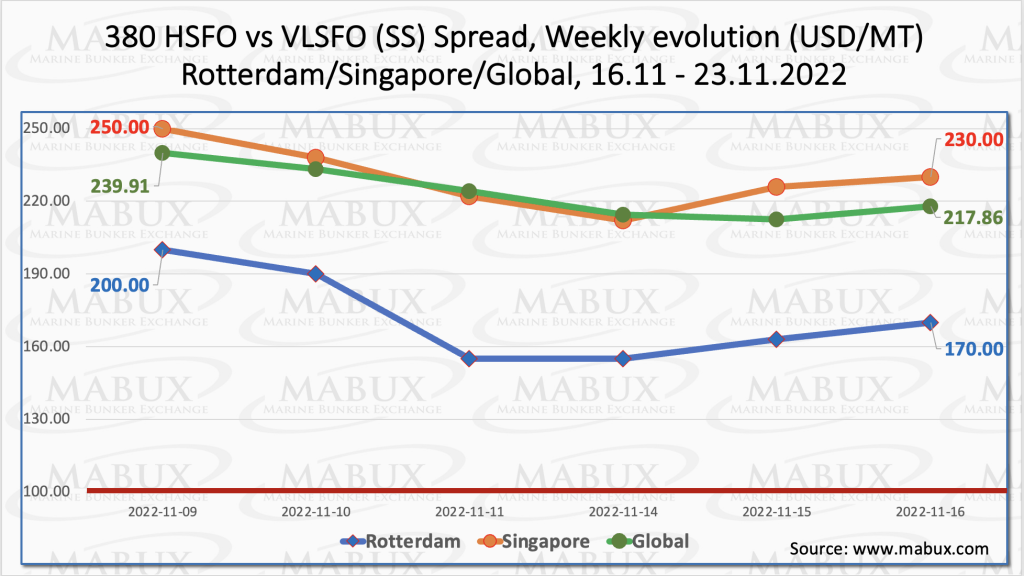 Natural gas prices in Europe continued upward trend this week. The price of LNG as bunker fuel at the port of Sines (Portugal) rose to 1806 USD/MT on November 21 (plus 90 USD compared to last week). Thus, the price of LNG exceeds the cost of the most expensive traditional bunker fuel grade by 729 USD: on November 21, the price of MGO LS at the port of Sines was quoted at 1077 USD/MT.
Natural gas prices in Europe continued upward trend this week. The price of LNG as bunker fuel at the port of Sines (Portugal) rose to 1806 USD/MT on November 21 (plus 90 USD compared to last week). Thus, the price of LNG exceeds the cost of the most expensive traditional bunker fuel grade by 729 USD: on November 21, the price of MGO LS at the port of Sines was quoted at 1077 USD/MT.
 Over the week 47, the MDI (comparison of MABUX market bunker prices (MBP Index) vs MABUX digital bunker benchmark (DBP Index)) continued to register underestimation of 380 HSFO fuel in all four selected ports. The underprice margins declined slightly and showed: in Rotterdam – minus $117, Singapore – minus $120, Fujairah – minus $180 and in Houston – minus $73.
Over the week 47, the MDI (comparison of MABUX market bunker prices (MBP Index) vs MABUX digital bunker benchmark (DBP Index)) continued to register underestimation of 380 HSFO fuel in all four selected ports. The underprice margins declined slightly and showed: in Rotterdam – minus $117, Singapore – minus $120, Fujairah – minus $180 and in Houston – minus $73.
In the VLSFO segment, according to MDI, Houston returned to the underpricing zone again, joining Rotterdam and Fujairah: minus $10, minus $63 and minus $5, respectively. Singapore thus remains the only overvalued port – plus $ 8. Undercharge premium has increased, and overvaluation has narrowed.
In the MGO LS segment, MDI registered fuel underpricing in two out of four selected ports: Rotterdam – minus $55 and Houston – minus $108. Singapore and Fujairah remained in the overpricing zone: plus $42 and plus $167, respectively. MDI did not have a sustainable trend in this bunker fuel segment.
 A new report from the Global Maritime Forum on the development of Green Shipping Corridors has found that ‘activity during 2022 exceeded expectations’ – but urged that ‘some key industry stakeholders, especially cargo owners and fuel producers, will need to be engaged as soon as possible’. The Report also argued that policy support from national governments will need to ‘embrace the challenge of closing the fuel cost gap between zero-emission and fossil fuels. 24 countries express support for the creation of Green Shipping Corridors as a way to demonstrate and deploy the zero-emission solutions necessary for shipping’s transition to zero greenhouse gas emissions. The report found that there has been an encouraging level of activity this year with more than 20 initiatives and 110 stakeholders from all main shipping segments involved – but it added that most of these initiatives remain at a ‘very early stage of development’, with only a handful reaching the feasibility and planning stages so far. Furthermore, the report warned that, so far, the maritime Green Corridors tend to be ‘too shipping-centric’, and therefore more needs to be done to ‘involve cargo owners and producers of future fuels’. Previous analysis has indicated that for shipping’s transition to get on track, 5% of fuels used on deep sea routes would need to be scalable, zero-emission fuels such as clean ammonia, methanol, or hydrogen.
A new report from the Global Maritime Forum on the development of Green Shipping Corridors has found that ‘activity during 2022 exceeded expectations’ – but urged that ‘some key industry stakeholders, especially cargo owners and fuel producers, will need to be engaged as soon as possible’. The Report also argued that policy support from national governments will need to ‘embrace the challenge of closing the fuel cost gap between zero-emission and fossil fuels. 24 countries express support for the creation of Green Shipping Corridors as a way to demonstrate and deploy the zero-emission solutions necessary for shipping’s transition to zero greenhouse gas emissions. The report found that there has been an encouraging level of activity this year with more than 20 initiatives and 110 stakeholders from all main shipping segments involved – but it added that most of these initiatives remain at a ‘very early stage of development’, with only a handful reaching the feasibility and planning stages so far. Furthermore, the report warned that, so far, the maritime Green Corridors tend to be ‘too shipping-centric’, and therefore more needs to be done to ‘involve cargo owners and producers of future fuels’. Previous analysis has indicated that for shipping’s transition to get on track, 5% of fuels used on deep sea routes would need to be scalable, zero-emission fuels such as clean ammonia, methanol, or hydrogen.
Global bunker indices may continue to trend lower next week ahead the sanctions against the oil products’ export from Russia to Europe to be imposed on December 05.
Source: www.mabux.com

